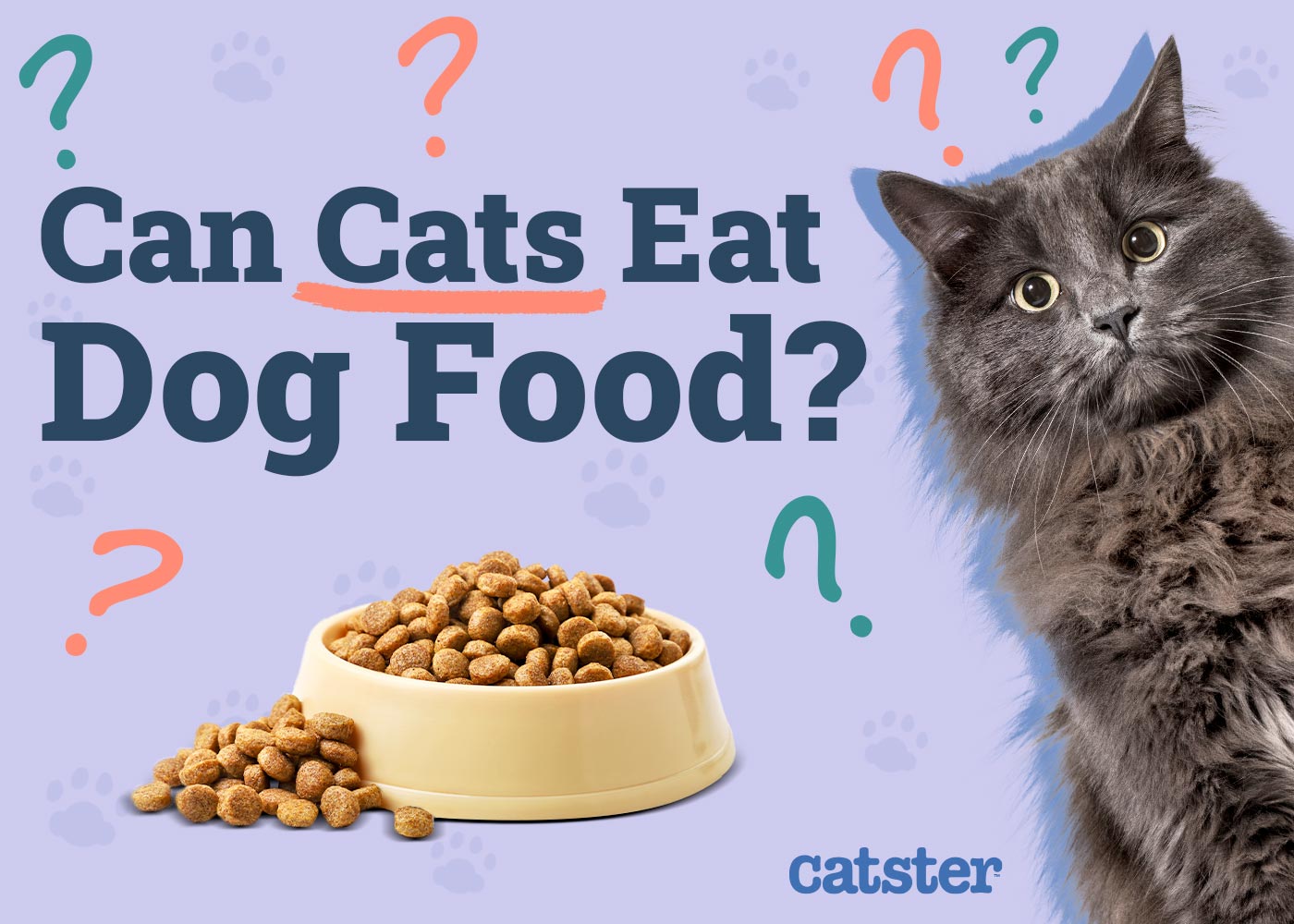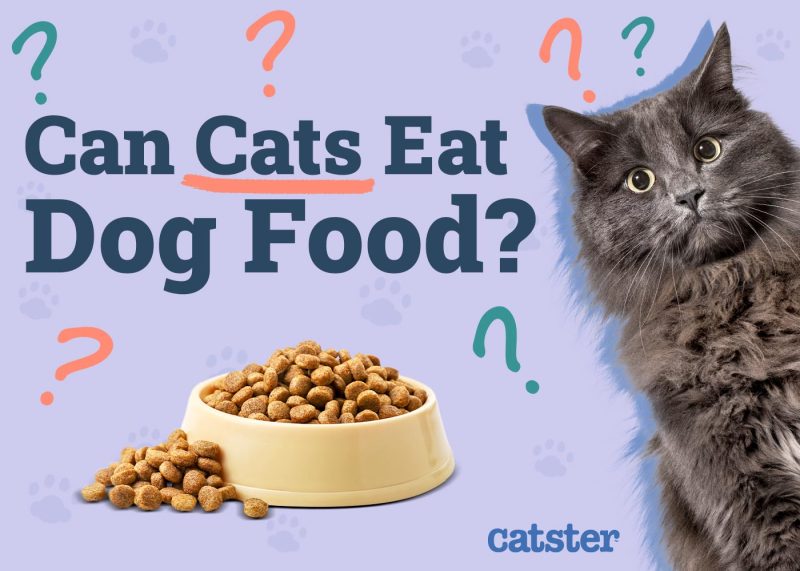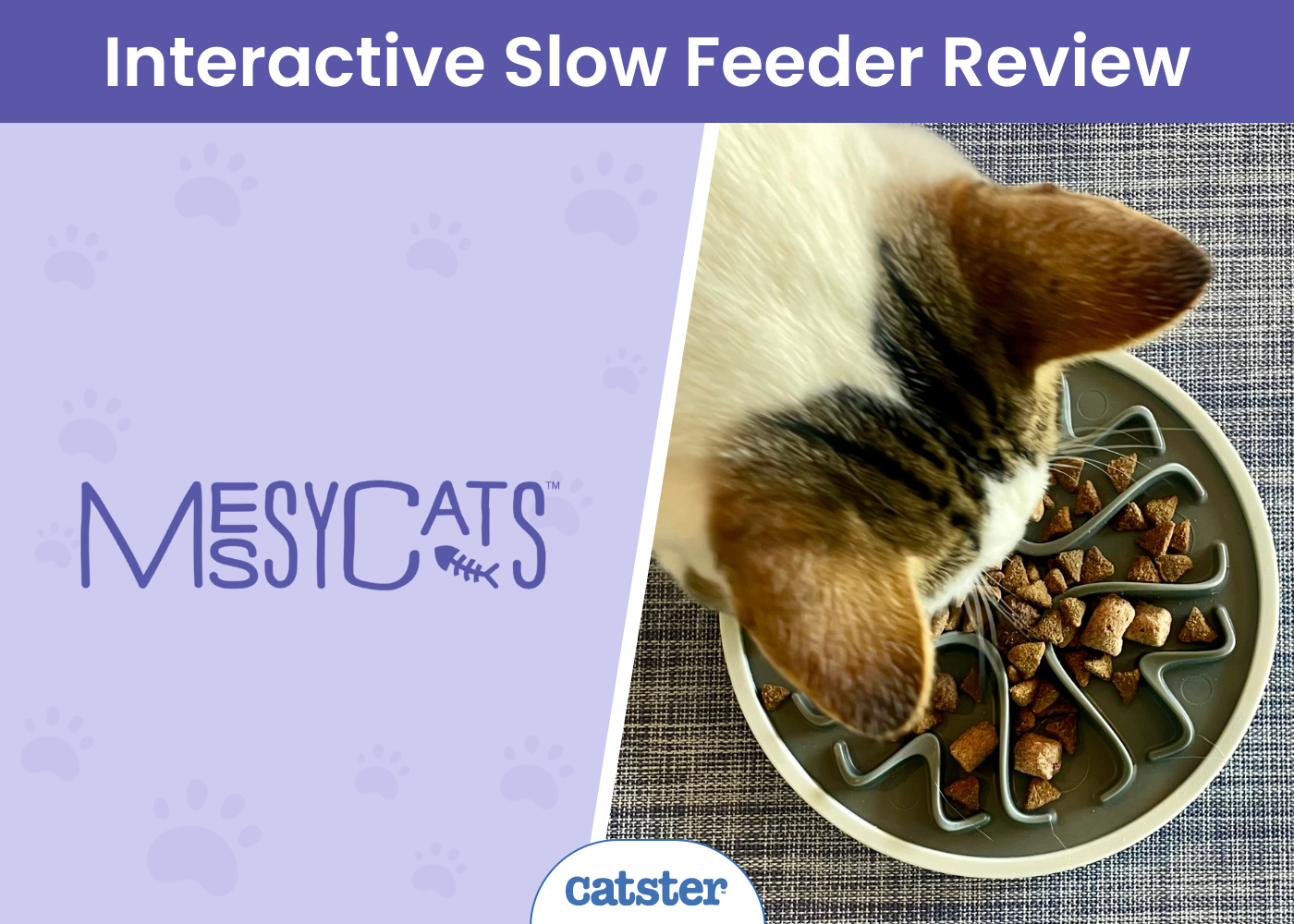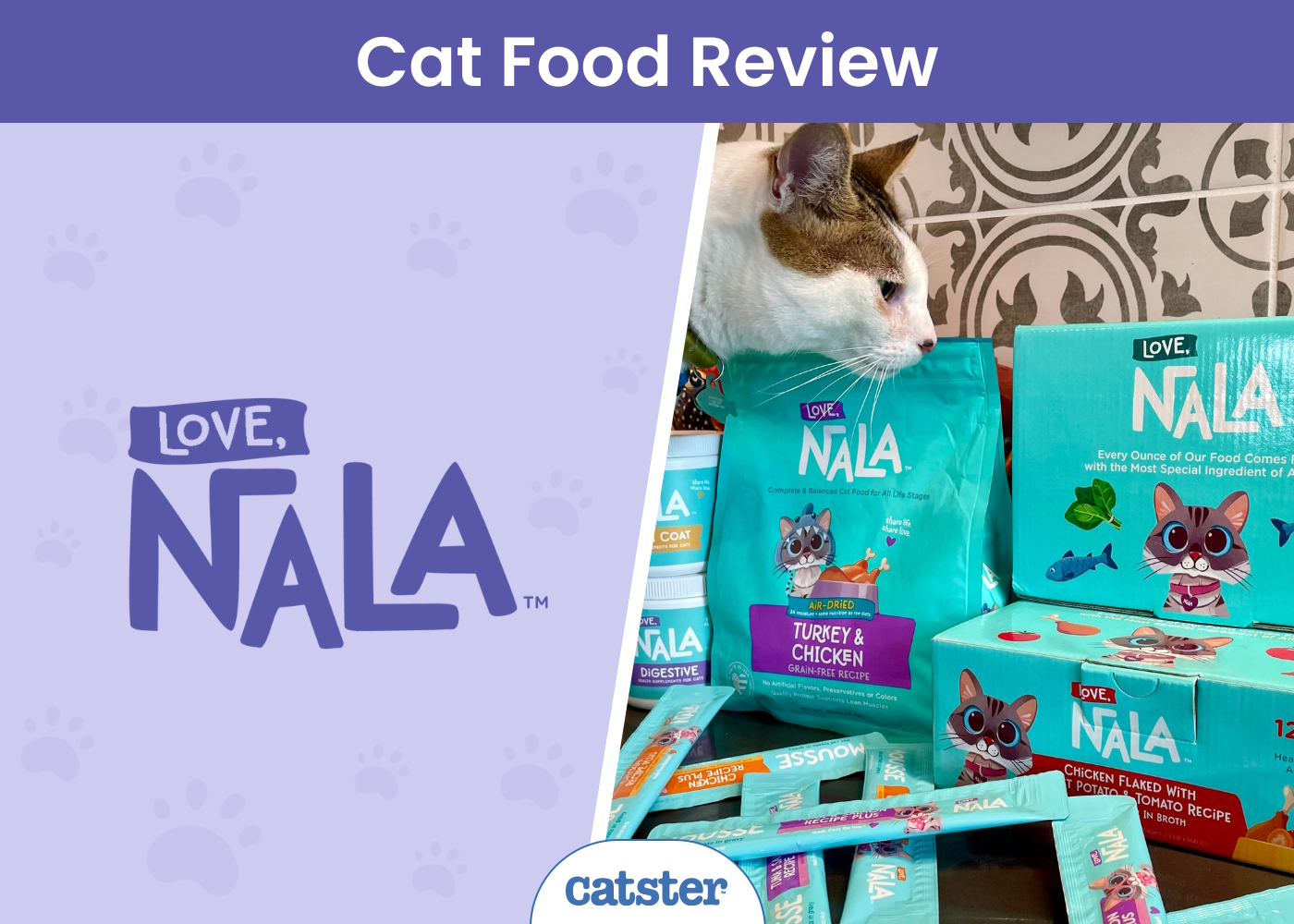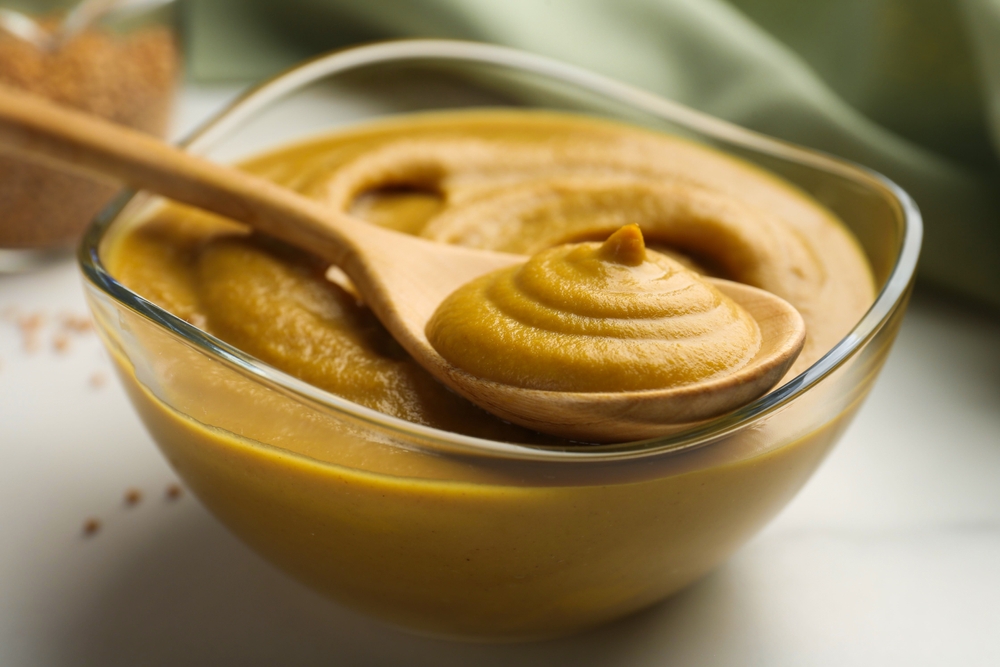Click to Skip Ahead
Dog food and cat food look quite similar after you open the bags. When you compare apples to apples—that is, dry kibble dog food to dry kibble cat food—the differences seem minimal. But just because they look the same doesn’t mean they are.
If you have a dog and a cat and you’re out of cat food, the occasional meal of dog food isn’t going to hurt your feline. But if it becomes a staple in their meal regimen, you could end up with a malnourished cat. Let’s take a closer look at dog food and how it can affect your cat.
Is Dog Food Safe for Cats?
If you’re only feeding dog food to your feline once, then yes, it’s safe. But that doesn’t mean it’s healthy. There are some primary differences between cats’ needs and dogs’ needs.
Dogs are facultative carnivores. This means that while they need animal protein in their diet, they are still able to digest plant matter to a certain extent and may temporarily sustain themselves by doing so if the need ever arises. However, they aren’t meant to be vegetarian or vegan on a long-term basis, and they aren’t omnivores either. When given a choice, dogs always favor meat over plant-based foods.
For a hungry cat, a meal or two of dog food isn’t likely to cause any major problems. It could potentially upset your cat’s stomach, but it won’t cause the same kinds of problems that could arise from continued feeding.
Differences Between Cat Food and Dog Food
If you take a look at the ingredients and nutrient profiles of popular feline and canine foods, you’ll notice some serious differences.
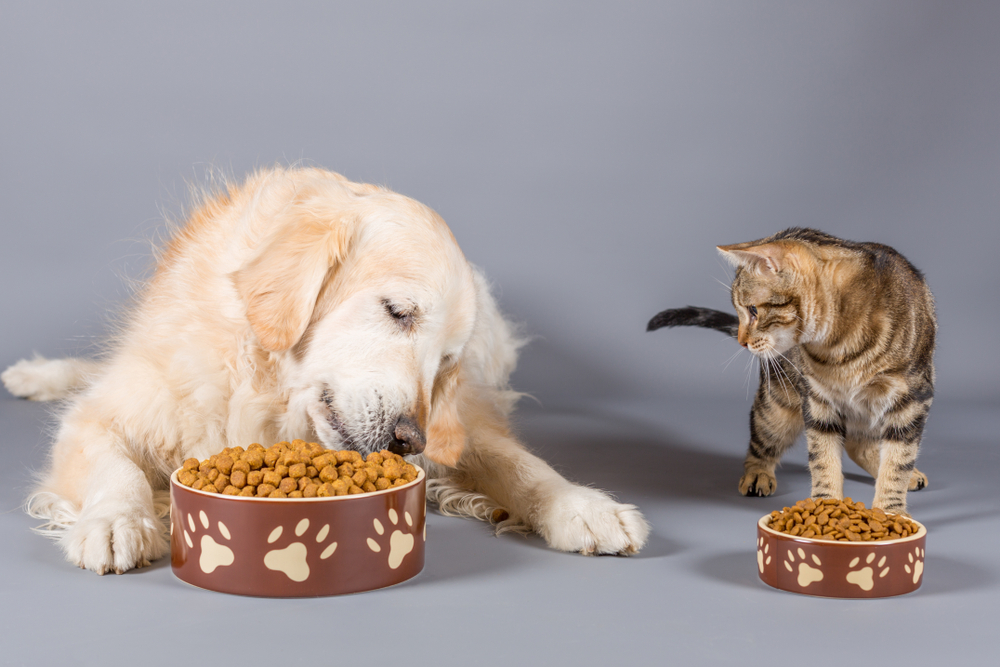
Taurine
Dogs’ bodies can make taurine. Cats, like human infants, do not have this ability (adult human bodies can make their own taurine). This means that, unlike dogs, cats need to get sufficient levels of taurine through the foods they eat. A cat that’s deficient in this essential amino acid can exhibit some serious side effects, including dilated cardiomyopathy or a weakened heart, impaired vision, and problems with digestion.
Because dogs can make the taurine they need, it’s rarely added to dog food. But cats require this nutrient, so it’s required to be included in cat food. You can supplement with taurine, but it’s much better for your cat to get adequate levels directly through the food they eat.
Protein
Many vets recommend a diet that consists of at least 45–50% protein for adult cats. Cats have no problem handling diets that are higher in protein. You’d be hard-pressed to find dog food containing that much protein. If you were to feed dog food to your cat for an extended period, even if it was high-protein dog food, it likely wouldn’t meet your cat’s needs and would cause deficiencies.
Vitamin A
Dog food often contains vitamin A, but not at the same levels as cat foods. Cats are unable to synthesize this vital nutrient, and if they’re low in vitamin A, they can develop a host of health issues. Vitamin A deficiency can result in unhealthy skin and coat, night blindness, deteriorated muscles, and more.
For cats eating a diet of high-quality feline food, vitamin A deficiency is rarely an issue. But dog food is lacking in vitamin A compared to cat food, and your cat is likely to be deficient in this vitamin if they eat dog food as a substitute for cat food regularly.
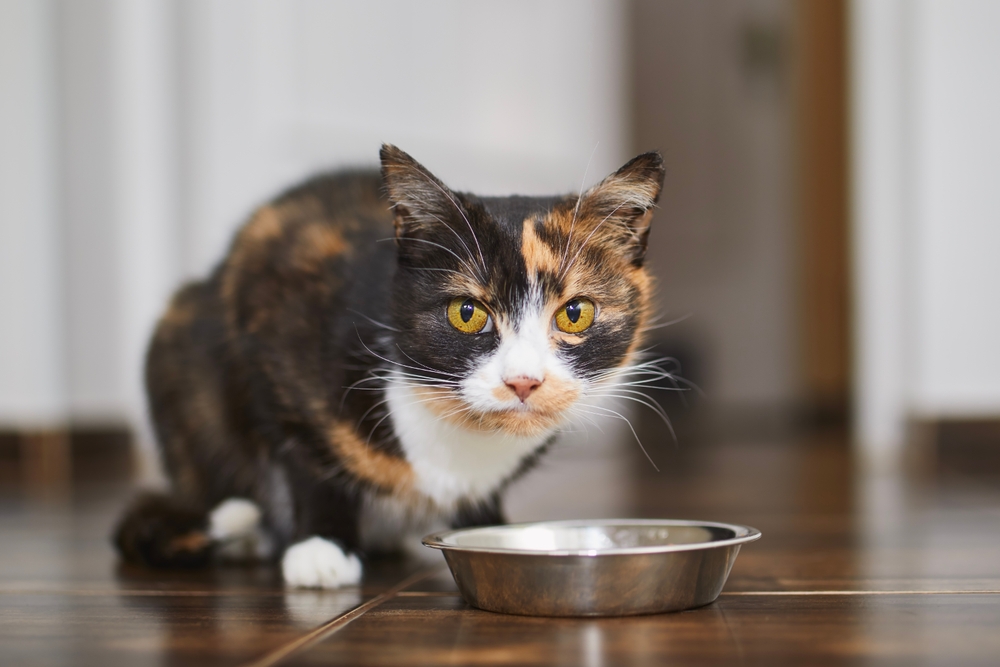
Arachidonic Acid
Niacin
Niacin is yet another nutrient that cats derive solely from diet alone. Dogs are able to convert the amino acid tryptophan into niacin; cats cannot do so.
Flavor
The truth is that most cats won’t be attracted to dog food. Cats are known for being picky eaters. Conversely, dogs are known for eating out of the trash and ingesting nasty things like poop and puke. Ironically, dogs have several times as many taste buds as cats. While cats have just 470 taste buds, dogs have a whopping 1,700.
Cat foods are specifically made to appeal to a cat’s picky flavor preferences. As such, dog food is generally unappealing to them. Granted, you will find the occasional cat that likes to munch on dog food here and there, but by and large, they’re a rarity.
What Should You Do if Your Cat Eats Your Dog’s Food?
You just walked in and saw your cat eating out of your dog’s bowl. Now, you’re concerned for your furry friend’s health and you’re wondering what effects this meal could have on them. Don’t worry, dog food isn’t toxic for a cat. The problems arise when your cat is eating dog food in place of cat food because they won’t be getting all of the nutrients they need to remain healthy.
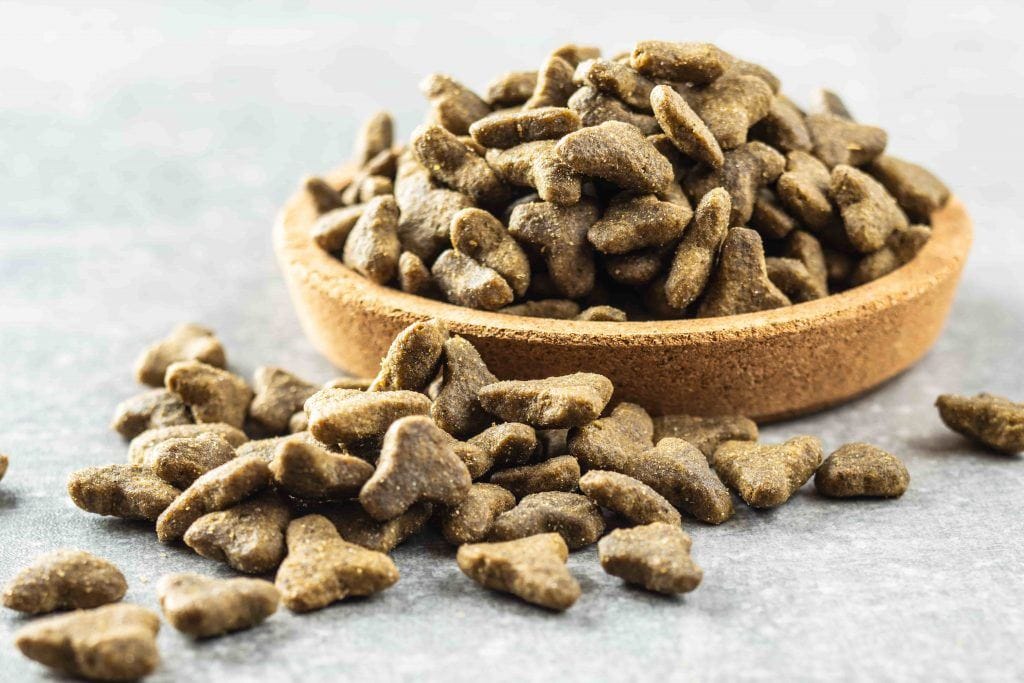
Can Dogs Eat Cat Food?
By now, you’ve probably determined that dog food isn’t a good long-term option for cats. If you’re curious about the appropriateness of cat foods for dogs, the answer is more or less the same. Cat food often contains all the nutrition a dog needs and isn’t toxic for dogs either. However, the issue with feeding dogs cat food is overnutrition.
The excess protein and fats that cats require aren’t necessarily beneficial for a dog. Since their bodies won’t store extra protein, the task of its elimination from their system falls to the kidneys. An excess strain on the kidneys can be detrimental in the long run.
Excess fat your dog doesn’t utilize will simply be stored for later use and might eventually lead to an obese pup. In addition, the micronutrient requirements of cats and dogs are different. Therefore, food intended for cats shouldn’t be given to dogs on a long-term basis.
Conclusion
If you need to feed your feline some dog food for some reason, then it’s not going to hurt them if you keep it to just a few meals or fewer. Prolonged feeding of dog food over cat food will result in a deficient cat that can develop a variety of health problems. But a single meal of dog food isn’t going to be a threat to your cat’s health, even though their taste buds aren’t likely to be interested.
Related Reads:
Featured Image Credit: Catster.com

